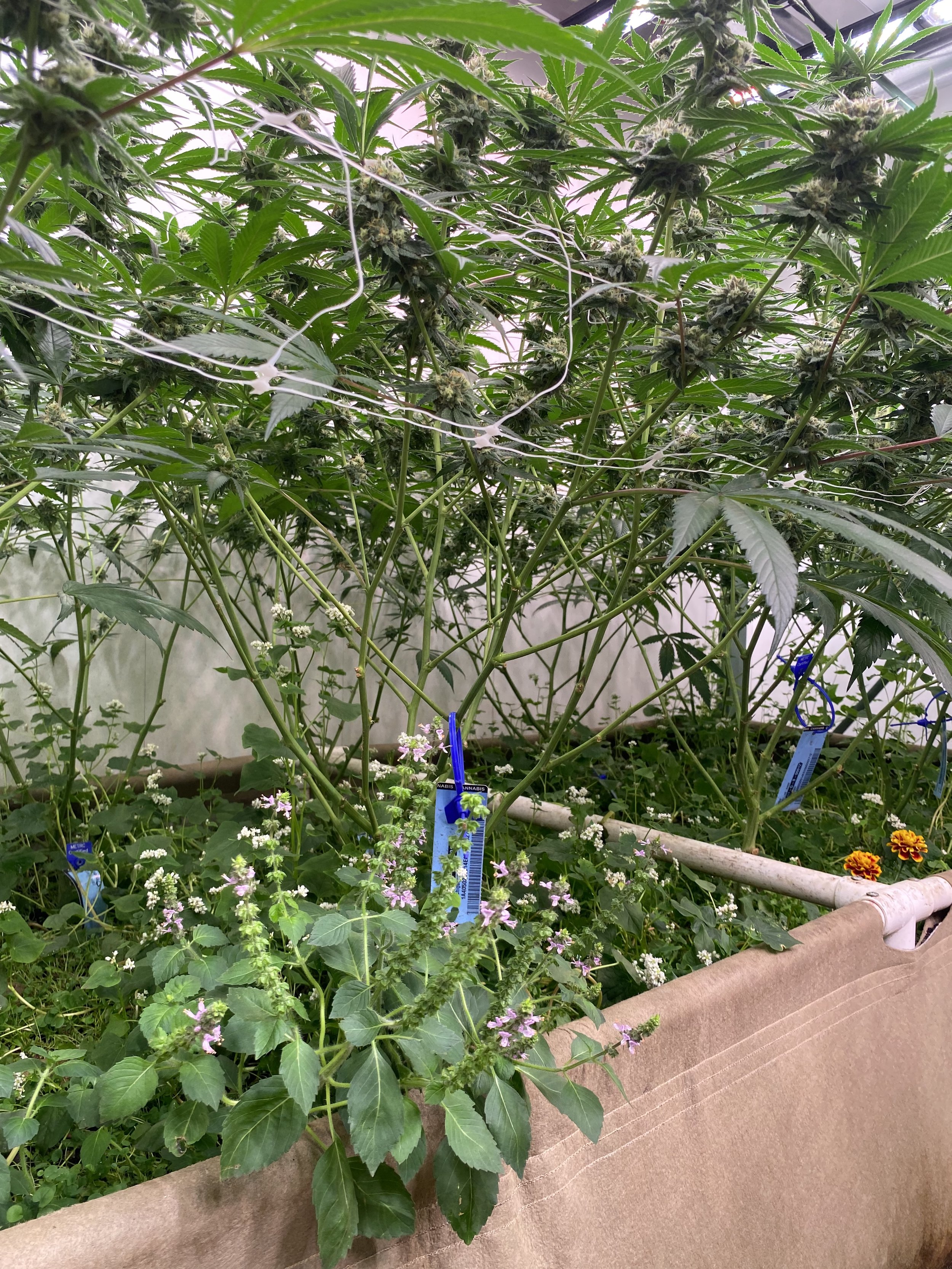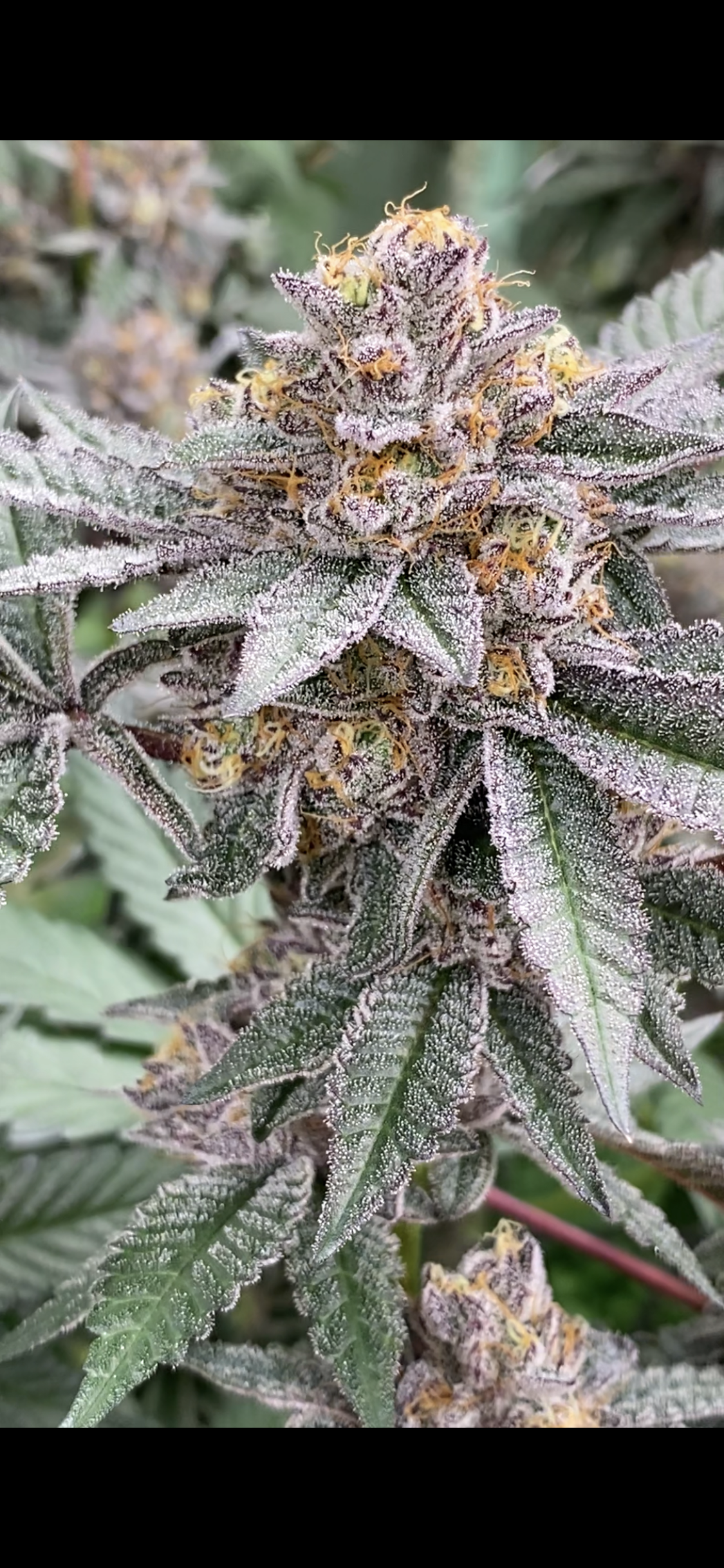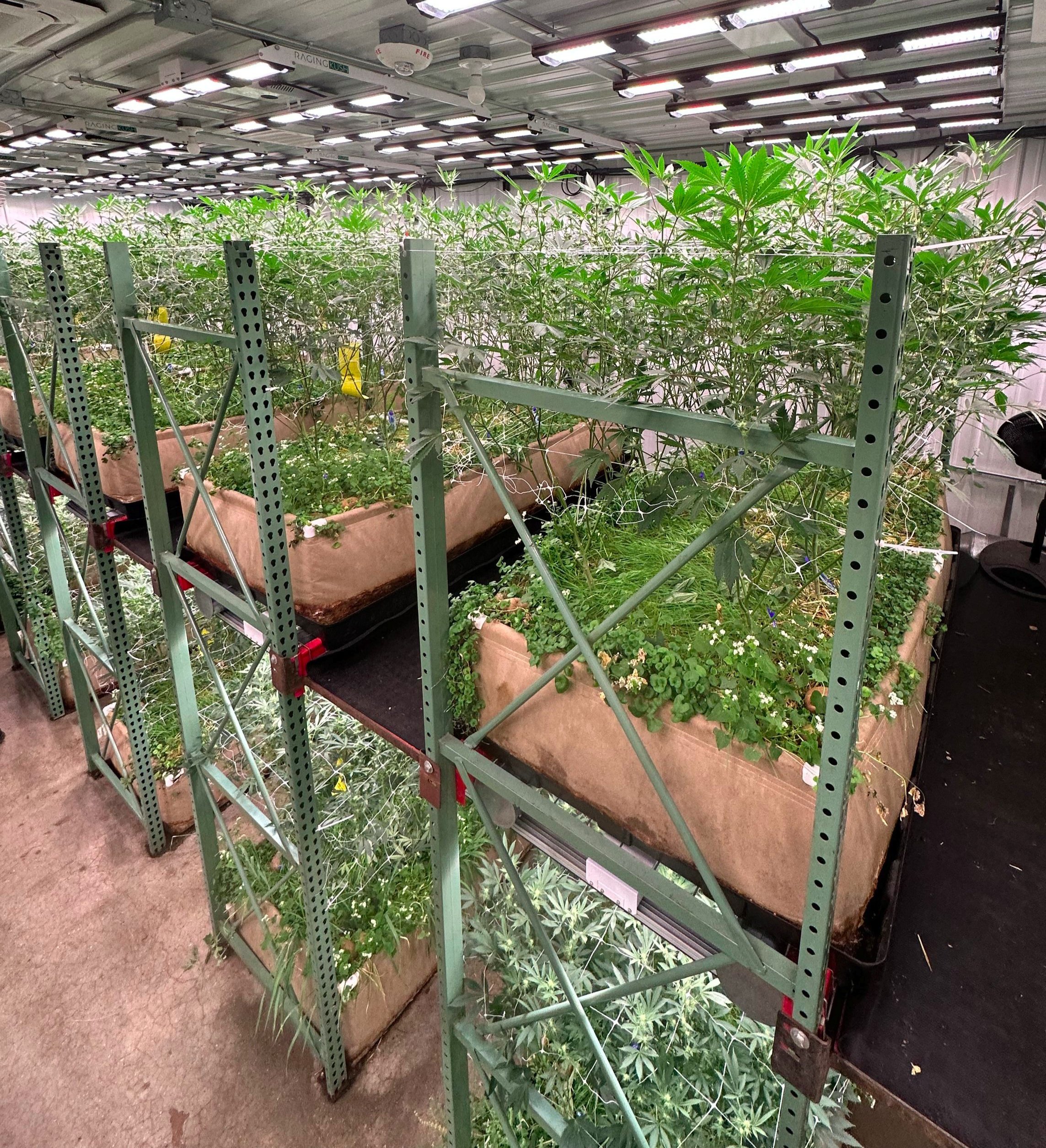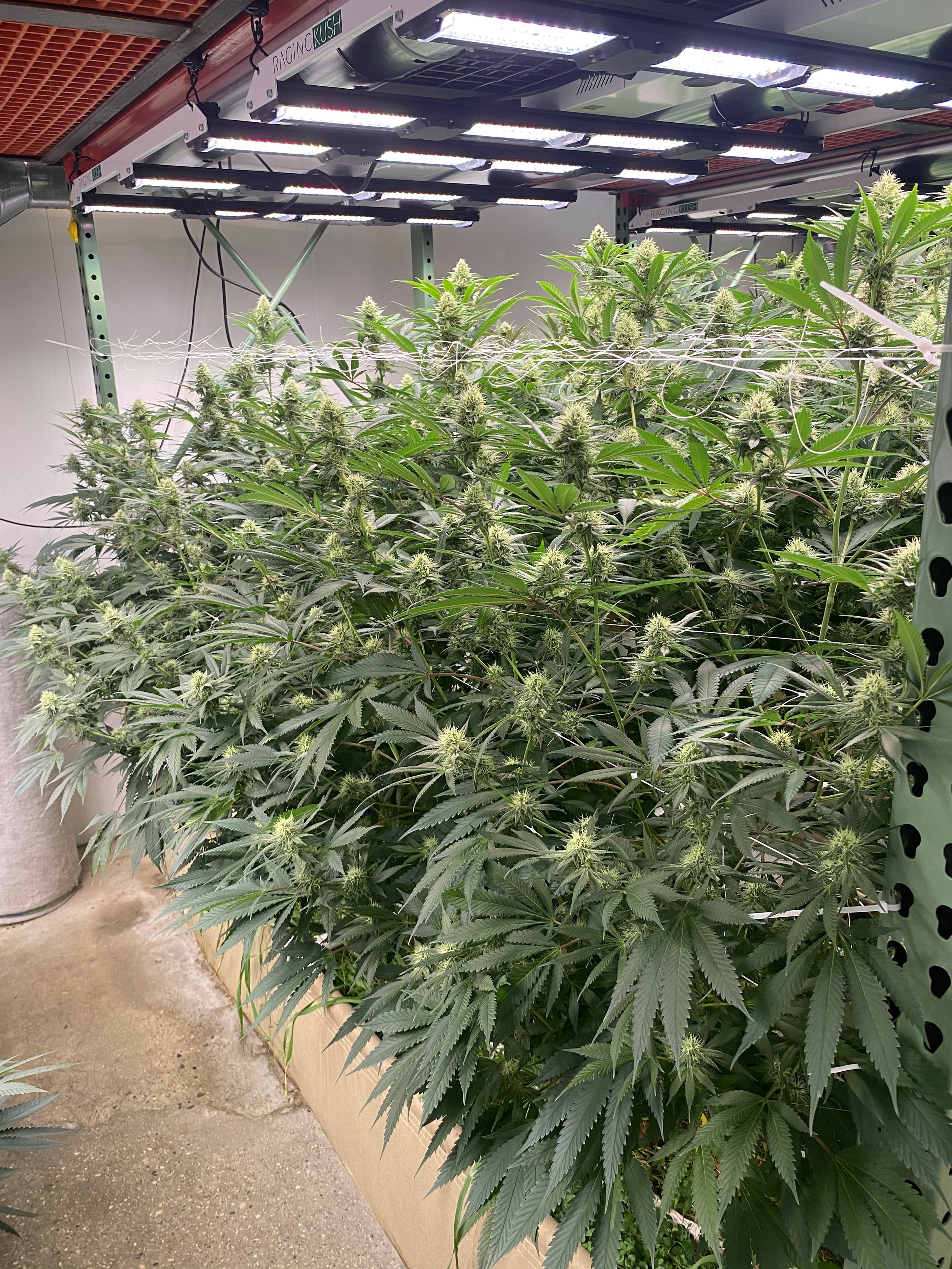
What is a living soil cannabis ecosystem?
This system of cultivation bio-mimics nature in an indoor setting, and aims to provide the cannabis plant with the conditions it would experience in the wild. Living soil cannabis ecosystem is a cultivation method that is beyond organic and no synthetic nutrient regimes are involved. In a living soil ecosystem, the bulk of the soil for the beds is bought only once and continually reused. Soil recipes are carefully crafted from the highest quality natural inputs. At the heart of the living soil ecosystem is the compost which is made from the cannabis “waste” products and is used to maintain the long term fertility to the soil. Compost contains minerals, humic acid, and most importantly the microorganisms that give the soil life and sustain the soil heartbeat. In a living soil ecosystem cannabis plants are given the freedom to obtain the specific nutrients they require from their relationship with the soil biology. A living soil ecosystem is a polyculture, many other plant species are grown alongside the cannabis which benefit the growth. Diversity is crucial in a living soil ecosystem because it creates harmony, resilience, and reduces the effects of pests and disease by maintaining balance.
“In soil, energy needed for plant growth is created by the complex interactions between biology, chemistry and physics known as bio-geo-chemical reactions.”
- Alexa Kipper
Consulting services include
SOPs
In my four years as Director of Cultivation at a state licensed living soil cannabis facility I have developed successful standard operating procedures for all aspects of cannabis cultivation including cloning, transplanting, pruning, watering, ammending schedules, integrated pest management, companion planting, soil sampling, soil amending, harvesting, curing and composting. In permaculture they say they say, the answer to everything is ‘it depends’ because each situation and environment is unique. With this ethos in mind, I will develop customized SOPs to fit your facilities needs and goals.
Soil Building Recipes
Living soil cannabis cultivation aims to be as sustainable as possible therefore soil is only purchased once and is reused. Starting with the correct balance of soil inputs and amendments is imperative to soil health. One may think purchasing a pre mixed soil from a company will always work. However, from my experience these mixes often lack the nutrition requirements needed for optimal production and quality can vary greatly. I will help you source ingredients for your soil mix, and use soil chemistry and biological testing to ensure all the ingredients are mixed in the proper ratios for optimal plant health and growth.
Biological Microscopy Analysis
As previously stated, the microorganisms are the heartbeat of the soil and what gives it life! In a living soil system plants obtain their nutrition and protection from pests and disease through their relationship with microorganisms. An imbalance in the populations of microorganisms in the soil can have a negative impact on the health of the soil. Providing the soil with a diversity of microorganisms is essential to preventing soil borne pests and disease. Through a biological assessment I will help determine what species of microorganisms are missing from your soil and offer suggestions for how to inoculate them.
Natural Fertilizer Recipes and Composting Protocols
Composting crop residues are essential to maintaining fertility in the living soil ecosystem. Compost contains nutrients, humic acid, and microorganisms that are extracted and used as an inoculant to maintain soil health and fertility. Regulations for composting are different in every state therefore I will contact your state's cannabis legislators and design a composting system compliant with your state laws. In the past I have used compost as the sole and only input which gave great results. However after experimentation, I found that making homemade fertilizer ferments had a huge benefit to overall plant and soil health. I will teach you how to make traditional natural farming inputs such as Korean natural farming inputs and Jadam inputs. I will also share with you my recipes for adding biological diversity that I have developed using microscopy such as compost teas, aquatic microorganism teas, and protozoan infusions.
Soil Chemistry Audit
Proper soil chemistry is critically important to the health of the soil and cannabis plant. I use soil chemistry testing to determine if the soil has sufficient nutrients, in the correct balance, according to cannabis agronomists standards. In a living soil system, much of the nutrition will be provided by dry soil amendments. Based on the results from a standard soil test and saturated paste test I can make recommendations of what amendments need to be supplemented in the system. If toxicities or imbalances are detected, I will construct a plan for remediating the soil.
Integrated Pest Management (IPM) and Environmental Audit
Pest and disease management starts with healthy soil because plants growing in optimal soil conditions are naturally more resistant to pests and disease. Along with the comprehensive soil audit we will address the root cause of disease by improving the health of the soil. I will also develop an pest management regime that support biodiversity and reduces the chance of infestations. In an indoor setting, environmental controls are very important to consider for optimal plant health and growth. I will evaluate factors such as temperatures, humidity, light intensity, daily light integral, vapor pressure deficit, and frequency of watering.




Integrated Pest Management (IPM)
The root cause of pest and disease is unhealthy soil. When plants are grown in soil that has proper balance of nutrition and a robust microbiome they are more likely to be resistant to pests and disease. When plants are grown in deficient soil conditions, microorganisms like fusarium can act as plant pathogens, while in favorable soil conditions the fusarium can actually benefit plant growth. The same can be seen in humans, when our bodies do not have proper nutrition we also become more susceptible to diseases.
No organisms are inherently bad. In Korean philosophy they say “the Good and the Bad are One” Every organism has a purpose. Many organisms we consider bad are simply performing their ecological function, which is to break down and clean up dead and dying tissue. This may look to us like they cause sickness or disease. While in healthy and balanced environments the same microorganisms act in beneficial ways. The quality of the environment is what determines the function of the organism.
In my 10 years of indoor cultivation I have encountered, and have experience treating many pests including spider mites, thrips, aphids, root aphids, russet mites, root knot nematode, fusarium, and powdery mildew. In my pest management regime I focus on creating a healthy soil environment and apply regular compost teas to the rhizosphere and phyllosphere. I also use various beneficial insects such as predatory mites and nematodes for preventative maintenance. I am well educated on many organic pesticide products that are sometimes needed to treat severe infestations.
If you are experiencing an outbreak in pest and disease a comprehensive soil audit will help cure the root cause of this problem. The best way to boost the plants natural immunity is to ensure the soil has a diversity of nutrients and microbiology. I will also assist you in eliminating pest infestations with organic pesticides. Once infestations are eradicated I will develop an IPM regime that supports biodiversity to prevent future infestations.




Contact
Whether you have an existing living soil system or are looking to start a new project I can support you on your living soil journey. Please fill out an inquiry below and provide a detailed description of your project, questions, and ideas. I look forward to connecting!




